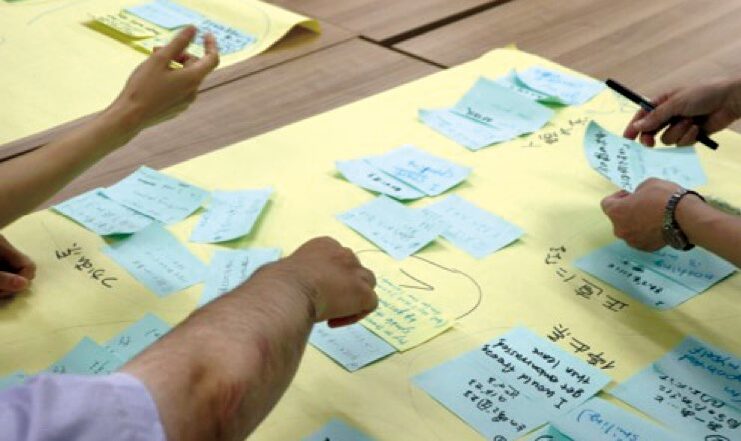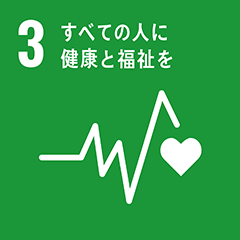Inochi Declaration
Have you ever had an experience you couldn’t put into words, leaving you to wonder: “Is it just me?” or “No one would understand anyway,” and feel isolated? Bring together those unspoken feelings—and try to craft words for them, together!
Each of us lives with a different body and in different environments. Naturally, our experiences vary. For those whose bodies or environments differ significantly from the majority, their experiences are also likely to diverge from the norm.
Everyday language circulating in society tends to crystallize common narratives repeatedly experienced by the majority—those “relatable episodes” that become common sense. Consequently, individuals in the minority may find themselves in situations where there are no words to express their own experiences. This absence of language makes it difficult to interpret their own experiences, envision their future, affirm the reality of events, or share empathy with others—leading to further isolation.
There are cases where experiences that cannot be expressed in everyday language can be described using technical terms. Encountering such terms may allow minority individuals to finally recognize and affirm their long-muddled experiences as real and find pathways to cope with them. However, language and knowledge produced by research communities—often dominated by experts who have not had these experiences themselves—do not always fully capture the lived experiences of those concerned.
Philosopher Miranda Fricker calls this imbalance, where daily language is biased toward the majority’s narratives, “epistemic injustice.”*1
To address such injustice, people who carry experiences that defy both everyday and academic expression have initiated what is known as “Tojisha-Kenkyu” (Participatory Research). This is a research activity in which individuals with shared experiences come together to generate words and phrases that articulate their realities and to uncover patterns within their experiences*2. Originally emerging from communities of people with psychiatric disabilities, addiction, or developmental disorders, this practice has since extended to parents grappling with the uncertainties of child-rearing, children unable to attend school without clear reasons, formerly incarcerated individuals seeking to convey their struggles, and corporate workers enduring unnamable stress. Together, they are building research communities that transcend backgrounds and attributes.
For instance, since 2001, Tojisha-Kenkyu has been used as a method to support community reintegration for long-term psychiatric inpatients and individuals released from prison*3. Since 2008, Tojisha-Kenkyu by autistic individuals has led to the scientific verification of their proposed hypotheses, contributing new insights into challenges such as body image, voice control instability, and narrowed personal space*4. Additionally, educational programs combining virtual reality (VR) simulations co-created with autistic individuals and video testimonials have been found effective in reducing prejudice and discrimination among participants*5. In recent years, Tojisha-Kenkyu has also begun to be utilized in transforming workplaces—such as companies and welfare facilities—into inclusive environments where diverse individuals can thrive*6.
Perhaps one of the most pervasive but invisible forms of inequality today—beneath a world where division and isolation are growing—is epistemic injustice. Professor Shinichiro Kumagaya and his research team at the Research Center for Advanced Science and Technology (RCAST), The University of Tokyo, have been studying the implementation of Tojisha-Kenkyu (a form of research conducted by and for people with lived experience of adversity) across various sectors, including healthcare, welfare, education, justice, urban planning, and corporate management. Interest in this Japan-born methodology is also growing internationally among researchers and civil society actors.

A scene of Tojisha-Kenkyu being conducted with participants from Finland, the UK, South Korea, and Japan, using interpretation systems, sign language, and subtitles.
The Inochi Forum, in collaboration with such researchers, is committed to promoting the implementation of Tojisha-Kenkyu across diverse domains toward the year 2050.
[Notes]
*1 Fricker, M. (Epistemic Injustice) cited in: Kunimasa Sato, Yuko Kamishima, Eisuke Sakakibara, Nayuta Miki (Eds.), Handbook of Epistemic Injustice, Keisoshobo, 2024.
*2 See also: https://aeon.co/essays/japans-radical-alternative-to-psychiatric-diagnosis
*3 Ministry of Justice model project https://www.moj.go.jp/kyousei1/kyousei08_00128.html
*4 Autism and prediction https://www.thetransmitter.org/spectrum/autism-may-stem-problems-prediction/?fspec=1
*5 RCAST program
https://www.rcast.u-tokyo.ac.jp/ja/news/release/20230803.html
*6 Study on workplace well-being (UMIN000048418)
https://rctportal.mhlw.go.jp/detail/um?trial_id=UMIN000048418
[Action Platform]
Diversity and Inclusion
[SDGs]



